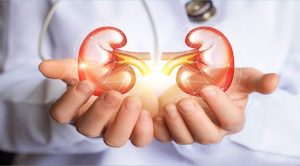Looking after your kidneys post-transplant is really important. We’ve divided the journey into two parts: what to do right after the surgery and how to maintain kidney health in the long run. Let’s dive in and learn more.

Keypoints
- Proper diet is vital for successful healing post-transplant.
- After surgery, patients may need a unique diet for recovery and healing.
- Let’s explore ways to keep yourself in good health after the procedure and avoid any potential issues.
Following a kidney transplant, it’s really important to eat well for a good recovery and overall health. When your kidneys haven’t been working well, your body might have faced some challenges. But with a new kidney, you have a chance to feel better than before. Nutrition plays a crucial role in post-transplant healing and long-term health. To simplify things, we’ve split the process into two sections: what to eat after surgery and the plan for the long run.
Right after surgery, patients may follow a specific diet, starting with liquids, then soft foods, and eventually normal meals. Good nutrition helps with wound healing, prevents infections, and maintains electrolyte balance. Once solid foods are allowed, we focus on the following:

Eating Right After Kidney Transplant: Your Post-Surgery Diet Guide
1. Hydration – Sip, Sip, Hooray!
Staying hydrated is vital for everyone, but especially crucial after a kidney transplant. Stay hydrated by drinking water, herbal teas, and low-sugar juices. This helps remove toxins, supports kidneys, and boosts energy. Keep your body refreshed and healthy!
2. Mindful Sodium Intake – Less is More!
Keep an eye on salt intake to avoid bloating and support good blood pressure. It’s vital for fluid balance and overall heart health. Avoid processed foods and limit adding extra salt while cooking. Instead, enhance the flavor of your meals with herbs and spices.
3. Choose Kidney-Friendly Proteins
Proteins are life’s building blocks, but some strains kidneys. Choose kidney-friendly sources like lean meats, fish, eggs, beans, and tofu for essential nutrients without kidney pressure.
4. Embrace Fresh Fruits and Veggies
Vibrantly colored fruits and veggies don’t just look nice, they’re also full of vitamins, minerals, and things called antioxidants. These special substances are like superheroes for your body, helping to keep your immune system strong and your whole body healthy. It’s a good idea to eat lots of different types of these fruits and veggies, so you can give your body lots of different nutrients that it needs.
5. Smart Carbohydrates – Whole is Gold
Opt for whole grains such as brown rice, quinoa, and whole-wheat pasta instead of processed grains. Whole grains have lots of fiber and important nutrients. They also assist in controlling your blood sugar levels, which is really important for staying healthy.
6. Calcium Counts – Choose Wisely
Calcium is crucial for bone health, but certain sources can increase the risk of kidney stones. Make sure to choose kidney-friendly sources for your calcium needs. Opt for options like skim milk, yogurt with low fat content, and plant-based milk enriched with calcium. Consult your doctor or dietitian for personalized advice.
7. Limit Phosphorus-Rich Foods
Keeping phosphorus levels in check is essential for kidney health. Reduce consumption of phosphorus-rich foods like dairy products, nuts, and carbonated drinks. Opt for low-phosphorus alternatives when possible.
8. Be Cautious with Potassium
Although potassium is important for making muscles and nerves work right, having too much of it can be bad after a kidney transplant. So, pick fruits and veggies that don’t have a lot of potassium, such as apples, berries, cucumbers, and green beans.

Kidney Transplant Diet: Eating Well for the Long Run
Congratulations on your successful kidney transplant! Eating the right kind of food that keeps your body in good shape is really important for your health in the long run. This article will show you the basics of a diet that’s good for your kidneys. It will help you understand how to eat well and feel better in your daily life.
1. Embrace a Kidney-Friendly Diet
After getting a new kidney through a transplant, it’s really important to eat in a way that helps your body heal and lets your new kidney work its best. This special diet is all about giving your kidneys an easier time by providing the right mix of nutrients.
2. Stay Hydrated
Proper hydration is key to kidney health. Make sure to drink plenty of water to keep your body hydrated and help your kidneys filter waste properly. Don’t forget to manage how much you drink, following what your doctor suggests according to what your body specifically requires.
3. Monitor Sodium Intake
Cutting down on salt aids blood pressure control and prevents kidney-harming fluid buildup. Skip processed foods, rich in sodium, to boost kidney health. Opt for fresh, whole foods and use herbs and spices to add flavor instead of salt.
4. Choose Kidney-Friendly Proteins
Your body needs protein. Choose wisely: go for lean meats, fish, eggs, and kidney-friendly options like tofu, beans, and lentils. They’re top-notch for your health. These options provide essential nutrients without overburdening your kidneys.
5. Moderate Potassium Intake
Potassium is essential for muscles and nerves, yet too much harms. If kidneys struggle, avoid high-potassium foods like bananas. Try apples, berries, and green beans for a safer choice.
6. Manage Phosphorus Intake
People who have received a kidney transplant need to pay attention to how much phosphorus they eat. Phosphorus is found in foods like dairy items, nuts, and fizzy drinks. It’s a good idea to not have too much of these foods. To be sure about how much phosphorus is okay for you, talk to your healthcare team.
7. Control Phosphorus Binders
At times, your doctor might suggest using phosphorus binders to help control the levels of phosphorus in your body. Follow their instructions and remember to take these medicines during meals. This will stop your body from absorbing too much phosphorus.
8. Limit Oxalate-Rich Foods
Certain patients might worry about developing kidney stones following a transplant. If you’ve had kidney stones before, it’s a good idea to avoid eating too much of certain foods that contain oxalates. These foods include spinach, beets, and nuts. Oxalates can play a part in creating kidney stones.
9. Prioritize Fruits and Vegetables
Brightly colored fruits and veggies are filled with important vitamins and antioxidants that help keep you healthy. But remember to watch out for kinds that have lots of potassium, and manage how much you eat.
Conclusion:
Eating properly after getting a new kidney is about finding the right balance and making smart decisions. If you stick to a diet that’s good for your kidneys, drink enough water, and take care of important nutrients, you can help your body heal well and experience the lasting advantages of your transplant. Remember to talk to your healthcare experts for advice that’s tailored to you, and keep valuing your fresh start in life.
